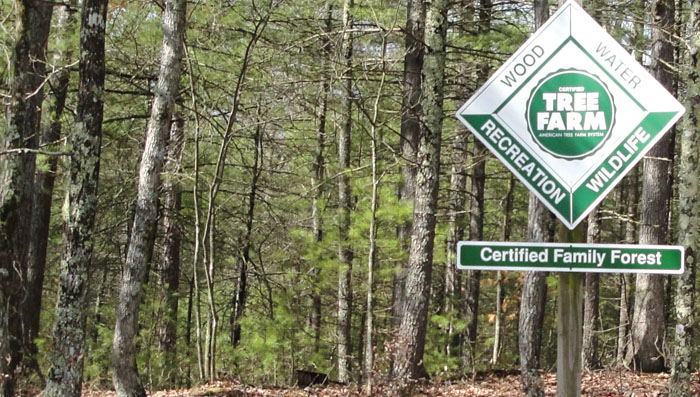Want to start a tree farm? Some tips
Published 12:00 am Friday, July 7, 2017

- Submitted photo Find out how your land can become a certified tree farm.
North Carolina is blessed with abundant forest land that makes valuable contributions to the quality of life and the state’s economy. More than 90 percent of these forests are privately owned; private, non-industrial landowners own roughly 75 percent of these forests.
Tree farms are more than pine plantations or Christmas tree farms. Tree farms are varied in nature and contain many different habitats and stages of forest regeneration, from seedlings to mature timber.
The American Tree Farming System (ATFS) was established in response to concerns that America’s private forests were being cut at unsustainable rates without reforestation.
It all began in 1941 when the first tree farm was designated in Washington State. The tree farm’s purpose was to demonstrate sound forest management practices to area landowners.
Sound, sustainable forests begin with determining objectives, deciding what resources are available on your land, and developing a written forest management plan that meets ATFS standards and guidelines as well as meeting your forest needs for generations to come.
Sustainable forestry is defined as managing our forests to meet the needs of the present without compromising the ability of future generations to meet their own needs by practicing a land stewardship ethic which integrates the reforestation, managing, growing, nurturing and harvesting of trees for useful products with the conservation of soil, air and water quality, wildlife and fish habitat and aesthetics.
The North Carolina Forest Service or a professional consulting forester can answer your questions and help you develop your management plan to become a certified American Tree Farm.
Another program that many forest landowners are involved in is the NC Forest Stewardship Program. The NC Forest Stewardship Program is a cooperative effort to help owners realize the objective of managing their forests for the benefits they desire. The program is voluntary; participants receive recognition for achievements in promoting total forest resource management.
Landowners receive technical assistance in developing a stewardship management plan. The forest stewardship plan is based on the landowner’s objectives; activities are scheduled to enhance the forest for wildlife, soil and water quality, timber production, recreational opportunities and natural beauty.
The forest stewardship plan is action-oriented and follows a schedule that is compatible with the owner’s resources and ability to conduct the work. Agency and resource professionals make recommendations, and the landowner then decides which activities to pursue. The recommendations focus on practical modifications of existing conditions rather than costly investment.
Stewardship practices do not need to be expensive to be beneficial. In fact, many landowners already practice good stewardship in many of their management activities.
If you are interested in becoming a certified tree farm or participating in the NC Forest Stewardship program, please contact your county N.C. Forest Service office at 704-216-8993 or the Rowan County Extension Center at 704-216-8970.



